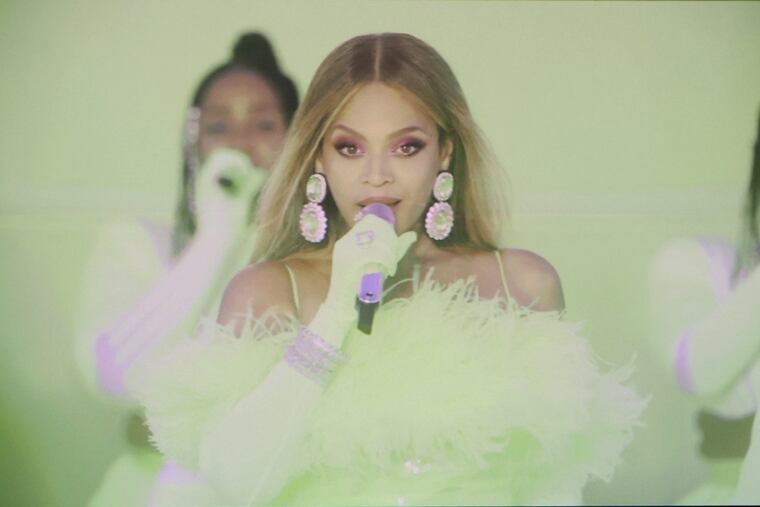Crystal Waters, Philly-area native and ‘house music icon,’ is glad Beyoncé’s ‘Renaissance’ draws on her genre
Beyoncé's lead single “Break My Soul” has brought renewed interest to house music. But house pioneer Crystal Waters asks you don't call it a comeback.

Beyoncé’s lead single “Break My Soul” has only solidified what many were already calling “the summer of house music” — Drake’s Honestly, Nevermind kicked off the season — but if you ask Crystal Waters, one of the OG’s of the genre and who has deep ties to the Philly region, she’d ask you not to call it a comeback.
“House is not stuck in the ‘90s,” said Waters, who catapulted onto the charts in 1991 with the song “Gypsy Woman (She’s Homeless).” “There’s fresh, new house music out every month.”
The self-described “house music icon” spoke to The Inquirer about her background and Béyonce’s Renaissance album from Barcelona before heading to Greece. She is still performing in festivals, making new music, and hosts a podcast called I Am House.
The Deptford native whose discography includes “What I Need” and “100% Pure Love” welcomes the newfound buzz and discourse around the music. Especially as newer audiences have increasingly associated the genre with white, European DJs like David Guetta.
“They gentrified house and called it EDM,” said Waters, glad that listeners are learning about the origins of the genre and who popularized it.
House has its roots in Chicago, where the “godfather of house music,” Frankie Knuckles, would play a “mélange of disco classics, weird indie-label soul curiosities, the occasional rock track, European synth-disco, and all manner of rarities,” according to Rolling Stone. The genre was propelled by Black, Latino, and LGBTQ revelers in the Windy City and New York.
It’s no surprise Waters entered the music, save for the fact she grew up bashful. Her father was a jazz musician and her uncle was a saxophonist active when the Philly sound was being pioneered by Kenny Gamble and others. Waters said she didn’t realize it at the time, but trips to Philadelphia with her father exposed her to jazz and the upbeat sounds of disco, which influenced her own music.
Waters exploded on the scene by pairing up with Baltimore-based producers Basement Boys in 1987. “Gypsy Woman” was No. 2 in club play by 1991, with The Inquirer describing the track as “a captivating story, told in Waters’ dry, Eartha Kitt-on-steroids alto.”
The song was based on a real Washington, D.C., woman who took great pride in her physical appearance and was determined to be independent despite falling on hard times.
But even as Waters took a six-month leave-of-absence from her job to tour, people doubted the genre’s longevity. Waters never shared those concerns. The Howard University graduate left her computer technician job at the D.C. parole board and never looked back.
Waters attributes the longevity of the sound to something people used to say in the early days: House is a feeling.
“House music has soul, it has the bass, it has the bottom, and people can really connect to that when they get into a club,” said Waters. “Once you’re in a club and you hear it, you can feel the upliftment of the music and how it takes your vibration and raises it.”
Still, it doesn’t hurt to have Queen B’s “Break My Soul” pull from the Robin S ‘90s hit “Show Me Love.” Since its release, countless articles have been written about house music and the women who led the tracks of its heyday. The Washington Post profiled Waters, a far cry from when it referred to “Gypsy Woman” as “ambiant house music.”
Waters said she asked someone close to Beyoncé́ to thank the superstar for showing the genre some love.
“I think all of us are having a little bit of a renaissance,” said Waters, of fellow ‘90s house icons.